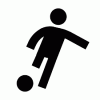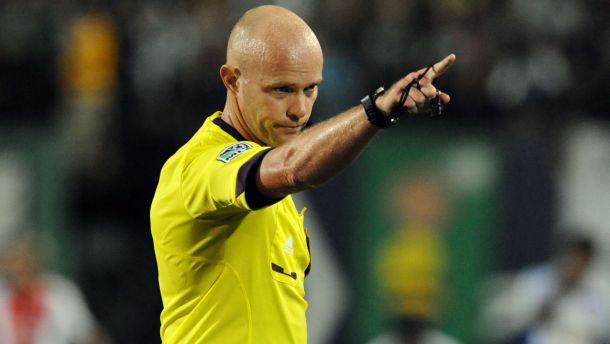The International Football Association Board (IFAB) is considering using video replay to assist referees on a trial basis. The IFAB is responsible for setting soccer's overarching rules and policies. They are meeting in Northern Ireland on Wednesday to discuss video replay.
There are certain times it feels that video replay would be very useful to the sport of soccer, or football depending on what part of the world you are from. There have been many instances in the past that would warrant the use of video replay.
The most common cry of video replay would be calls of apparent handballs inside the penalty area. A majority of the time the referee does gets it correct but there are other times that they don't.
Here are the main points of the current FIFA Law:
Handling the ball involves a deliberate act of a player making contact with the ball with his hand or arm. The referee must take the following into consideration:
• the movement of the hand towards the ball (not the ball towards the hand)
• the distance between the opponent and the ball (unexpected ball)
• the position of the hand does not necessarily mean that there is an infringement
FIFA president Sepp Blatter has had a long standing resistance to using video replay but may not have a choice in the end. Many heads of other federations are looking forward to the trial run.
“I believe we will look back in 20 years' time and say, 'Wasn't it quaint that we didn't use the available technology to help referees?'” said Greg Dyke, chairman of the English FA. “I think the referees themselves are now up for trying it out somewhere. Slowly and gradually, it needs to be done, as you could disrupt the game completely if you are not careful. I hope it will be agreed that we can have a big trial of it somewhere – but we won't put forward the Premier League.”
According to mlssoccer.com, Dyke and his FA colleagues are hearing a plan from the KNVB, the Netherlands' FA, to have a video assistant watch a match on television and communicate in real time with the game's referee via a headset. Dutch are ready to try out the technology in the KNVB Cup, that nation's domestic cup tournament, and need the go-ahead from IFAB.
“We are supporters of technology to assist referees in the decision-making process, and our first experiences are positive,” KNVB spokesman Koen Adriaanse told Press Association Sport. “We believe that a video assistant can support a referee in order to make more correct decisions. It is only for us in decisive situations: penalties, fouls before goals, red cards. And it is not only there to show wrong decisions, but also to support the referee in decisions that are right.”
If it is done correctly and does not slow the game, it would be a perfect feature to add to the sport. It would make sure that players are not wrongfully sent off or if it was actually a handball or not. Dutch officials are hoping it will only take five to 20 seconds for the referee to make a decision.










































